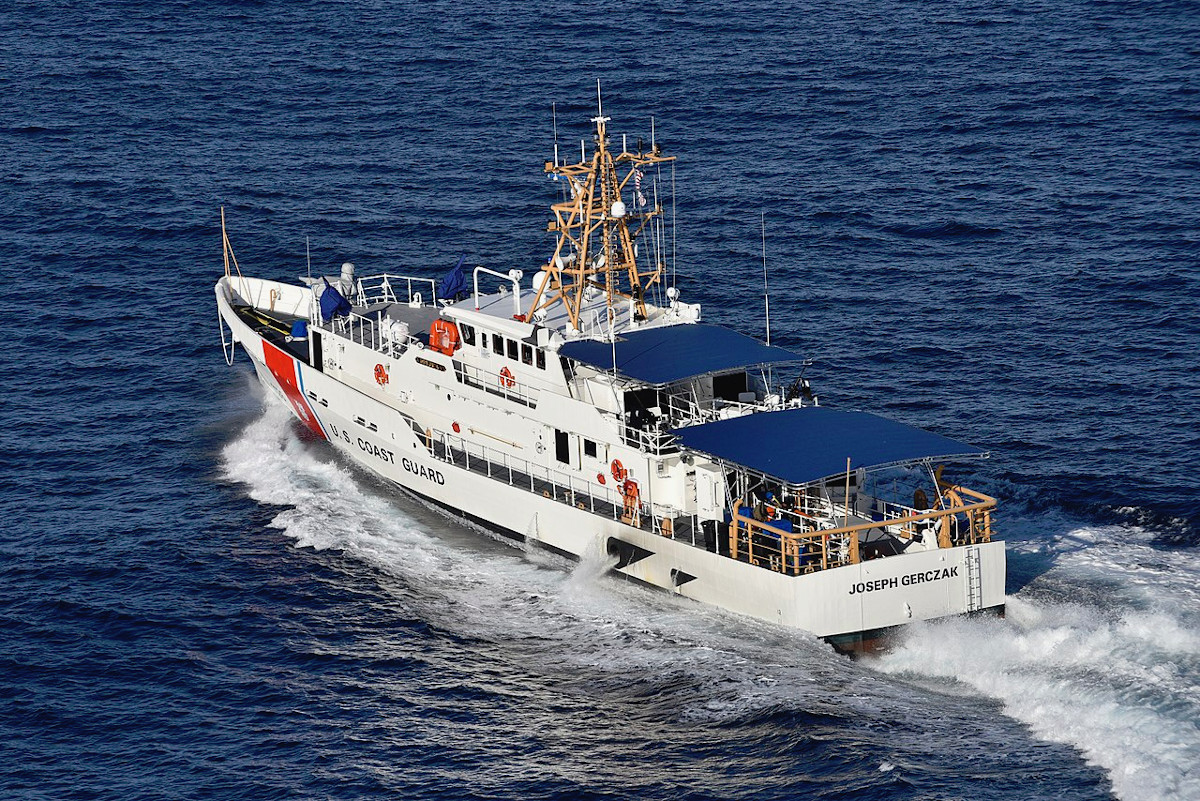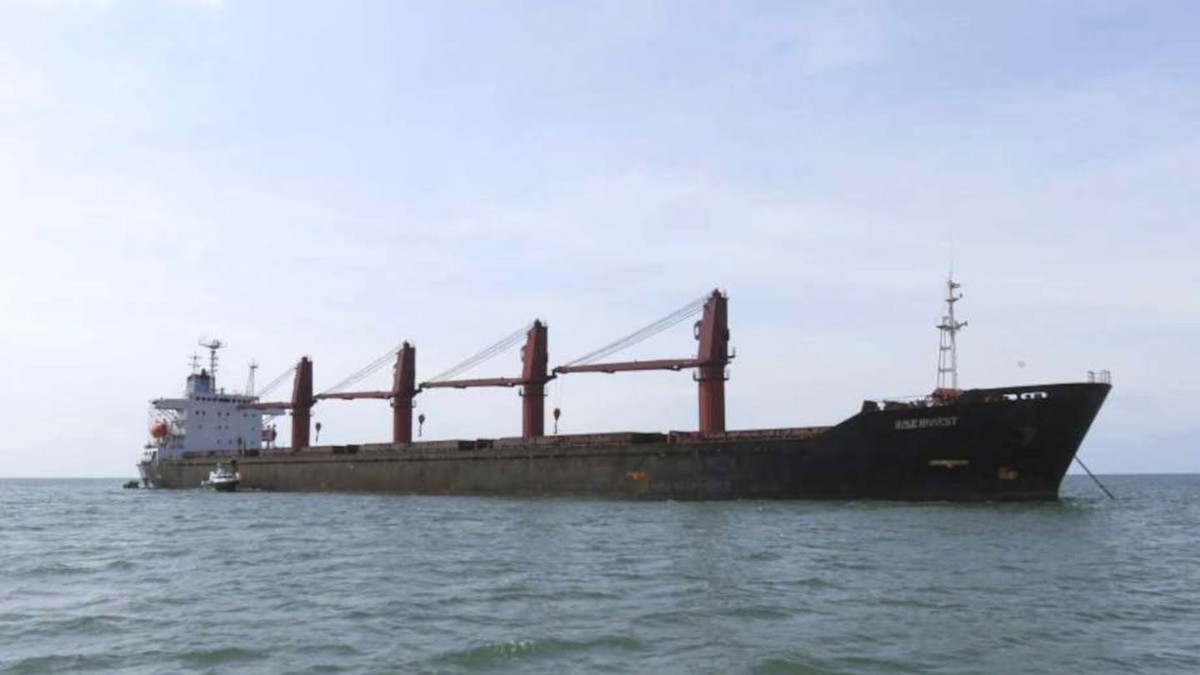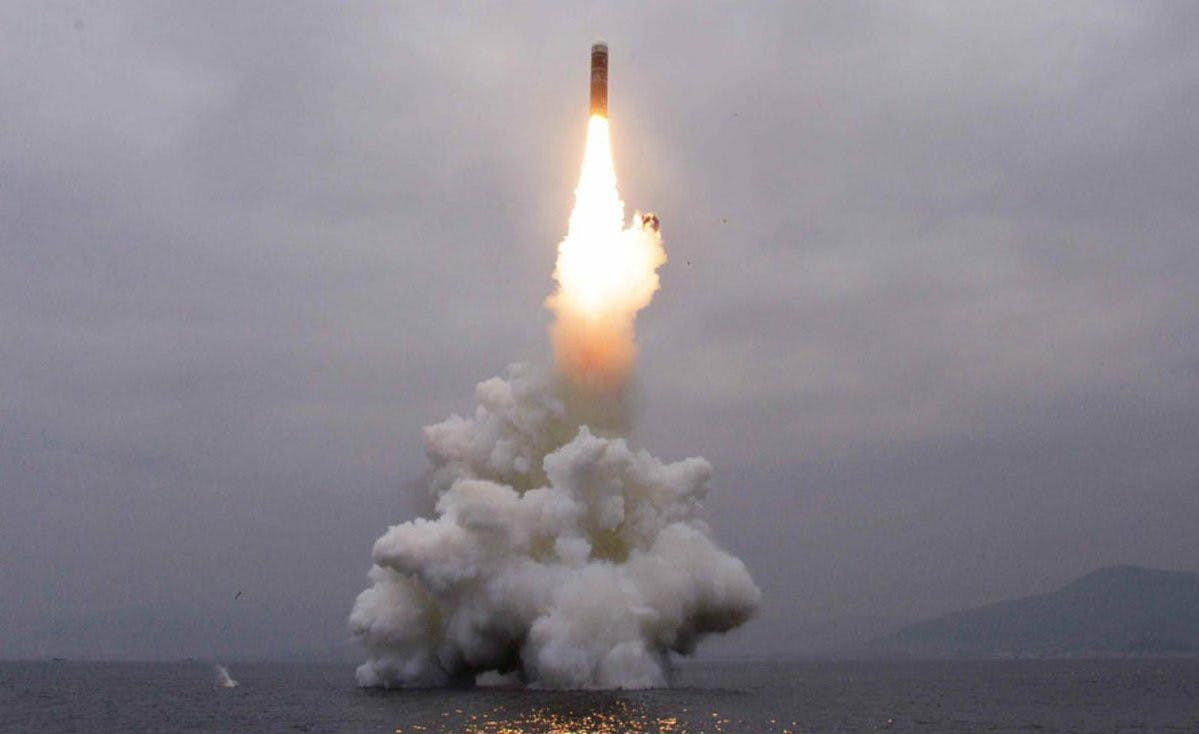The U.S. government has quietly sold off an ex-North Korean bulk freighter that it seized earlier this year in a sealed auction and the ship has left the port of Pago Pago in American Samoa under tow to an unknown destination. At least a portion of the proceeds from the sale of the M/V Wise Honest are likely to go to the families of Otto Warmbier and Kim Don Shik, who have both won judgments in U.S. courts against the North Korean government over the deaths of their loved ones. This sale also comes as U.S.-North Korean relations continue to cool, with the regime in Pyongyang renewing its threat to restart long-range missile and nuclear weapons testing if it doesn’t see the progress it wants in future negotiations.
On Oct. 8, 2019, the U.S. Coast Guard issued a press release that the Wise Honest had department Pago Pago the day before, but declined to name the ship’s new owners or explain what they intended to do with the ship. The service has been in charge of guarding the freighter since it arrived in American Samoa in May. Online ship tracking website vesseltracker.com reported that the vessel was headed to an unspecified scrapyard, but did not provide a source for that information. The Department of Justice had first seized control of the ship in Jakarta, Indonesia, over sanctions violations, in April.
“We are grateful to our partners in American Samoa and the Department of Justice who led this operation,” U.S. Coast Guard Captain Arex Avanni, the commander of Coast Guard Sector Honolulu, said in a statement. “We are pleased this event concluded without incident and to have supported the effort by ensuring the safety of the strategic deepwater port of Pago Pago and the security of the vessel while in U.S. custody.”
The Coast Guard says two of its cutters, the USCGC Joseph Gerczak and the USCGC Walnut, conducted patrols related to Wise Honest’s detention in and around the port of Pago Pago over the past five months. Maritime Safety and Security Team Honolulu and the Marine Safety Detachment in American Samoa also supported the security operation.

The Wise Honest, which Shin Kurushima Dockyard in Japan constructed in 1989, had been part of North Korea’s extensive sanctions-busting smuggling activities, which you can read about in more detail in this past War Zone piece. The vessel was reportedly carrying 25,500 tons of North Korean coal at the time of its seizure.
The vessel, which was dual-registered in North Korea and Sierra Leone at the time, had switched off its transponder before sailing into Indonesian territorial waters and appeared to be moving to offload its cargo at sea onto another ship, according to NK News. This has been a common tactic for the regime in Pyongyang to circumvent sanctions on its exports.

The United Nations is presently investigating whether South Korean energy firm Enermax Korea had been attempting to buy the illicit coal. This company is also under investigation in connection to other potential North Korean smuggling ships, including the DN5505. South Korean authorities seized that ship in February 2019 over sanctions violations, including potential involvement in the delivery of luxury automobiles to the regime in Pyongyang.
It’s unclear when the sale of the Wise Honest
occurred exactly. The United States District Court for the Southern District of New York ordered the sale on July 18, 2019, according to a notice about the upcoming auction from the U.S. Marshals Service.
“The Government makes no representation, warranty, statement, guaranty, promise, or commitment as to the quality or seaworthiness of the Wise Honest and notes that the vessel is not in condition to be moved except by tow,” the announcement said, which supports the reports that the purchaser intends to scrap it. The U.S. government sold the ship “as is, where is.”

The U.S. government has also not revealed the total value of the sale and where the proceeds will go. In July, the United States District Court for the Southern District of New York ruled that the family of Otto Warmbier had a valid claim to any such money, which appears to have triggered the sale in the first place. The Warmbiers had won a civil suit against the North Korean government in December 2018 over the death of Otto, with a U.S. court awarding them $500 million in damages.
North Korean authorities had arrested Otto, an American missionary, in 2016, but released him in a persistent vegetative state in 2017. He subsequently died after returning to the United States. It soon emerged that he had suffered a serious neurological injury shortly after his sentencing and had never recovered. The exact circumstances surrounding his treatment in North Korea remain murky.

However, relatives of Kim Dong Shik had also filed a similar claim in U.S. courts over the Wise Honest. A South Korean pastor and permanent U.S. resident, Kim disappeared in a Chinese town on the North Korean border in 2000 and subsequent reports indicated the regime in Pyongyang had abducted and murdered him. In 2015, his son and brother, both American citizens, won their own court case against the North Korean regime and won a $330 million judgment.
It remains to be seen how North Korea may respond to the sale of the ship. The seizure was unprecedented, being the first time the U.S. government had ever detained a North Korean vessel over sanctions violations. It drew a strong rebuke from Pyongyang, which declared it to be illegal and not in keeping with the spirit of the Singapore Summit between North Korean leader Kim Jong Un and U.S. President Donald Trump in 2018.
However, the seizure had already come after the collapse of the second summit between Kim and Trump in Hanoi, Vietnam in February 2019. Since then, U.S.-North Korean relations, which had seen something of a thaw, have steadily worsened. The most recent attempt to reboot negotiations over North Korea’s nuclear weapons program in Sweden this past weekend also ended in failure and drew more harsh comments from Pyongyang.
On Oct. 10, 2019, North Korea did threaten to abandon this policy, something it has done on multiple occasions before. However, this appeared to be in response to a possible upcoming United Nations Security Council Resolution condemning the Oct. 2, 2019 launch of the new Pukkuksong-3 submarine-launched ballistic missile (SLBM) and the outcome of the meeting in Sweden.

This was the first launch of an SLBM of any kind since 2016 and the longest range weapon North Korea had launched since 2017, when it announced a self-imposed moratorium on tests of longer-range missiles and nuclear weapons. It also followed the public disclosure earlier in the year that the North Koreans have been converting a Soviet-era diesel-electric attack submarine into a ballistic missile sub.
Whatever happens, the U.S. government has now demonstrated it is willing and able to not only use available legal options to seize North Korean ships – and potentially those belonging to other countries – over sanctions-busting, but also to sell them to help compensate parties in relation to civil court cases.
Contact the author: joe@thedrive.com
